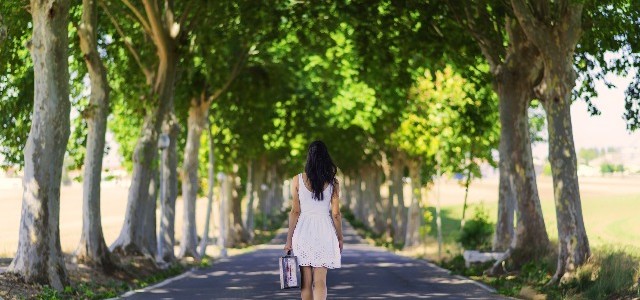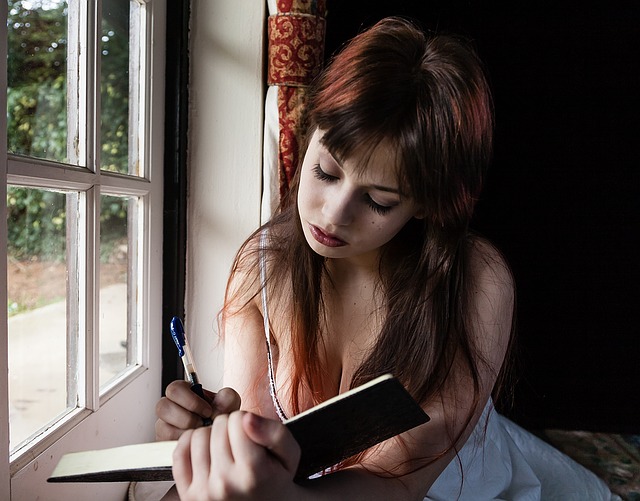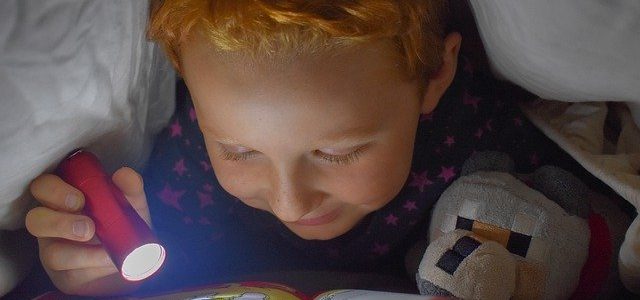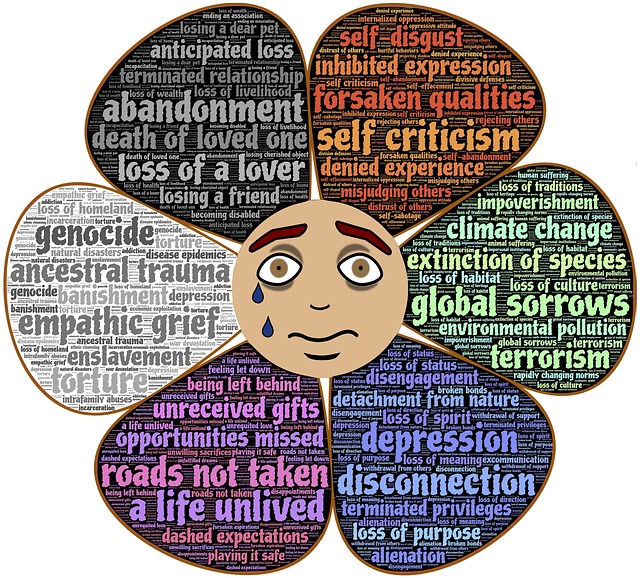Ruth E. Walker
Ever been to camp in late September? Weather notwithstanding, (cold and wet) it is a unique experience to be at with 400 student campers. But this is not a post about camp. It is about our comfort zones and what happens when we shift outside of them.
I’ve been coming to the Durham District School Board’s Integrated Arts Camp (DIAC) fairly steadily since 2008. I teach a creative writing elective and always love being there, immersed in the high energy of young creatives. But when both 2020 and 2021 were cancelled, I’d pretty much decided that it was time for a younger person to take over.

So when the camp director sent me an email to see if I would return for 2022, I was fully prepared to say “no” and suggest a couple of other writers to take my place. However, it was like being possessed. I didn’t say “no”; I said “maybe.”
“Maybe” leaves doors open
Long story short, here I am, ready willing and able to eat breakfast, lunch and dinner in a dining hall full of noise: laughter, shouts, wooden benches scraping wooden floors, Melmac dishware (look it up if you haven’t had the “pleasure”) clattering across long wooden tables, rain splattering against the wall of windows, dirt and bits of gravel gracing the floors…you get the picture.
So, this is something I’m used to, having been here many times before. And working with young students, I’m used to that though the new schedule means I had to alter my teaching plan (which I generally do, anyways.)

What I am NOT used to is teaching the Song Writing elective. When I saw that on my schedule, I panicked. I am a poet. I write short stories. Novels. I do not write songs because I do not sing and I do not play an instrument. Clarinet in Junior Band does not really count at this stage. And, sure, I loved choir because I could mouth the words. I do love to sing…in private. It’s a healthy practice for lungs and heart. And I love music – pretty much all kinds of music, from opera to blues.
But song writing? Nope.
Trouble is, kids were already signed up.
Commitment via contract
I spoke with my boss, the camp director. Explained the issue. Was prepared to step aside and call up a replacement who could handle both song writing and creative writing. Thanked him for having such faith in my ability but explained I’d fall pretty darn short.
He came up with a solution: a teacher who does know about song writing, who does play an instrument. I will tag team teach with him. And I’ll work with the students on creative writing, rhyme, rhythm, repetition, hooks, inspiration, using the five senses – all the things I share in my other class but with music as a full partner in the process.
Am I terrified, sitting in the camp lounge, writing this post for the coming Wednesday? Yes. Yes I am. But also energized, excited and curious. I’m ready to learn a lot – far more than my feeble research on the subject has taught me.

And our first day did not disappoint. Jeff is a terrific teacher – engaging and knowledgeable and, most importantly, knows how to make a safe and encouraging space for the mix of students (Grades 7 through to 12) and their range of abilities.
I’ll support his program with creative writing exercises. And, along the way, I’ll have a much better handle on the process of song writing. It’s a true gift and I’m delighted to receive it.
Saying yes
In my writing life, I’ve had lots of opportunities to say no. But every time I’ve taken the chance and said, “Yes!”, wonderful things happened. I learned. I stretched my skills. I failed (such a good thing to happen, truly) and I succeeded.
I am, at heart, an introvert who fakes extrovert pretty well. Stepping outside my comfort zone has generally meant overcoming fears and insecurities. Looking around at all these young campers, some picking up an instrument for the first time or stepping out alone onto a stage or sketching a portrait that others can see – these young people are my role models.

When my writing students put pen to paper, I tell them “Your words, your way.” And as we progress and they sometimes read their words aloud, I encourage them to “own your words.” It’s all a journey, I remind them, and we’re on it together.
That’s all I need to remind myself to stretch. Who knows, maybe this old writer will write a song or two. I’ll leave it to others to bring the music to my words, which I will only sing in private. Until, one day, I just might sing in public. One more comfort zone barrier pulled down? Maybe.





























 Sadly, I have several beautiful journals—handmade paper, illustrated, filled with wise sayings, beautifully bound—and I will likely never write in them. I’m afraid I’ll “spoil” them, like everything I write in them needs to be perfect. Silly, maybe, but that’s me. Many writers are inspired by beautiful paper or pens, or illustrations and bindings. Just not me.
Sadly, I have several beautiful journals—handmade paper, illustrated, filled with wise sayings, beautifully bound—and I will likely never write in them. I’m afraid I’ll “spoil” them, like everything I write in them needs to be perfect. Silly, maybe, but that’s me. Many writers are inspired by beautiful paper or pens, or illustrations and bindings. Just not me. I tried various sizes, lined and unlined, and finally settled on a 6 x 9 lined. It fits easily on my bedside table and filling 3 pages doesn’t intimidate me. The reality is, I often fill far more. They fill up quickly, so I invested in a leather refillable version that closes with a tab and has a pen holder. Refill notebooks are cheap and easily found at the dollar store, because it is a standard size. I’m not forced to buy refills from the original manufacturer. As I finish each one, I label it with the dates it covers and store them on a shelf in my writing room.
I tried various sizes, lined and unlined, and finally settled on a 6 x 9 lined. It fits easily on my bedside table and filling 3 pages doesn’t intimidate me. The reality is, I often fill far more. They fill up quickly, so I invested in a leather refillable version that closes with a tab and has a pen holder. Refill notebooks are cheap and easily found at the dollar store, because it is a standard size. I’m not forced to buy refills from the original manufacturer. As I finish each one, I label it with the dates it covers and store them on a shelf in my writing room.
 A good friend of mine keeps her journal in a large blank-paged artist’s sketch book. She writes in it, draws in it, sticks photos and leaves and feathers in it too. It’s like a giant scrapbook, and she says she likes the freedom of not having lines. I’m not so good with things that don’t have boundaries—safety edges—but I do keep a version of this. I have one for my novel, with newspaper clippings, photos, magazine cut-outs, maps of towns or plans of houses. Visual stuff. Electronically, I use Pinterest (a board for each novel) and Scrivener has great research capabilities for keeping visuals and web links.
A good friend of mine keeps her journal in a large blank-paged artist’s sketch book. She writes in it, draws in it, sticks photos and leaves and feathers in it too. It’s like a giant scrapbook, and she says she likes the freedom of not having lines. I’m not so good with things that don’t have boundaries—safety edges—but I do keep a version of this. I have one for my novel, with newspaper clippings, photos, magazine cut-outs, maps of towns or plans of houses. Visual stuff. Electronically, I use Pinterest (a board for each novel) and Scrivener has great research capabilities for keeping visuals and web links. Quite by chance, I was given a pocket journal, about the size of a credit card. I wondered what on earth I could possible use it for. I decided I would force myself to observe through all the senses and each day write just a single line to describe something in a different way. The sentence-a-day part didn’t work out, but those single lines have inspired poetry and been a great exercise for my creative mind.
Quite by chance, I was given a pocket journal, about the size of a credit card. I wondered what on earth I could possible use it for. I decided I would force myself to observe through all the senses and each day write just a single line to describe something in a different way. The sentence-a-day part didn’t work out, but those single lines have inspired poetry and been a great exercise for my creative mind.

















 In January, we traditionally take stock of our lives. For writers, that involves our creative lives, our writing lives. So far, we have already looked at
In January, we traditionally take stock of our lives. For writers, that involves our creative lives, our writing lives. So far, we have already looked at 



 the end of my studio time, right on the dot of 4:00, Joey the Dog comes in, sits down and stares hard at me. He’s letting me know in no uncertain terms, it’s time for his walk. It’s like having my own personal trainer.
the end of my studio time, right on the dot of 4:00, Joey the Dog comes in, sits down and stares hard at me. He’s letting me know in no uncertain terms, it’s time for his walk. It’s like having my own personal trainer.